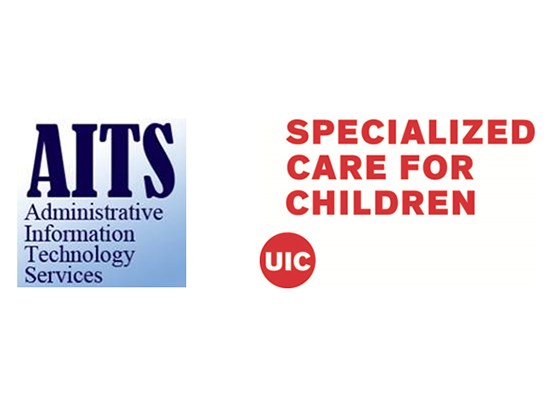DSCC Turns Information into Meaningful Results for Families

Data helps DSCC put children with special healthcare needs at the center of a seamless support system.
The University of Illinois at Chicago’s Division of Specialized Care for Children (DSCC) partners with families to help their children with special healthcare needs connect to services and resources. A part of this partnership includes securely and confidentially gathering information about our families so we can identify their needs and effectively develop a plan to meet them.
DSCC recently began a project with the Administrative Information Technology Services (AITS) office in the University of Illinois System to combine information gathered from our care coordination and our claims system and use this data to gain a complete picture of DSCC’s operations and outcomes for families.
Katie Shaffer, DSCC’s Associate Director of Program Support and Analytics, discussed the project and its benefits last week at the University Data Summit in Champaign.
Katie explained how the project allowed us to develop dashboards that make frequently-requested information available at the click of a button through powerful data visualizations, such as bar graphs and pie charts. We now have information at our fingertips to answer such questions as:
- Who are we serving? (Demographics, location, program)
- What type of healthcare issues do our participants have? (The eligible and non-eligible conditions of those we help)
- What level of care coordination intensity are we providing? (How many contacts, how many referrals)
- How do participants come to us and how well are we enrolling them into our programs? (Referral source and conversion rate)
- When and why do participants leave our programs? (Reason for discontinuation and age)
This project also created a data warehouse that better allows us to track and look up care coordination and claims data. We can now easily compare and link our care coordination activities to the services that DSCC pays for families. The warehouse also allows us to create trending reports to see how things change over time and ultimately measure how effective we are and the impact of our services.
“Prepared with insightful information from our data warehouse and dashboards, we are making well-informed decisions that help our program put children and youth with special healthcare needs at the center of a seamless support system that improves the quality of their lives,” Katie said.


